Coronavirus: Councils warn government bailout cash 'gone now'
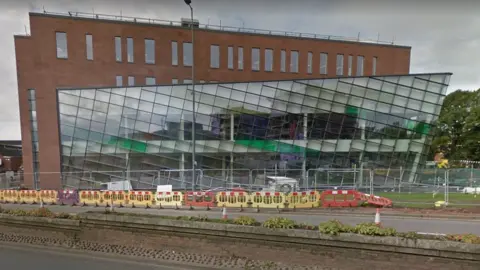 LDRS
LDRSCouncils in England say they have to plug funding gaps worth hundreds of millions of pounds within weeks to avoid "significant" cuts.
The coronavirus pandemic has increased councils' costs while income has been lost from services like parking.
Leaders say funding already allocated is "not even close" to covering costs or money that has already been spent.
Two government grants to councils worth a combined £3.2bn have already been announced.
However, some say it will fall far short of what they need.
Newcastle-under-Lyme Borough Council said it had used already all of its £65,000 grant from the government to house 21 homeless people.
Deputy council leader Stephen Sweeney said: "It's gone now. We have £1.5m in reserves, you don't need to do the maths to see how long before we get problems."
The council has closed markets and leisure centres and has "effectively waived" parking fees, leading to a drop in income.
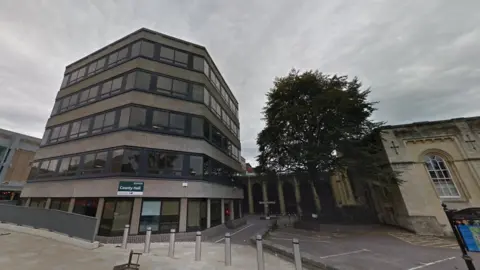 Google
GoogleAuthorities in Oxfordshire - who received almost £15m from the first round - said they stood to lose £100m as a result of coronavirus costs.
Without further aid, councillors said they would "become financially unsustainable with depleted or no reserves".
Lancashire County Council has received more than £35m from the first half of that money but estimates it will need a lot more, the Local Democracy Reporting Service said.
Council leader Geoff Driver said the £3.2bn "will not even come close to meeting the additional expenditure local government has incurred", adding authorities had been advised by the government to "spend the money and seek forgiveness later".
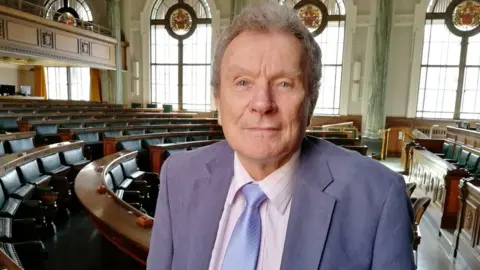 LDRS
LDRSDespite being allocated £8.9m in the first wave of grants, Salford Council in Greater Manchester said it faced a potential £33m black hole in its finances.
In a letter to the prime minister, council leader Paul Dennett said: "Anything other than full funding of local government for our response and for longer term financial stability would be a betrayal of the critical front line workers in local government, and of the people of Salford."
Windsor and Maidenhead Borough Council has warned it could have to stop all new expenditure apart from caring for vulnerable people, a process known as a Section 114 notice, by the end of the financial year.
Cabinet member for finance David Hilston said: "We are not at that point of issuing a Section 114 yet, but if it ever came to that point the government would be aware of it even beforehand and it's incumbent for this administration to do anything it can to resolve its financial position, which we are doing anyway."
The process would be the same as that followed by Northamptonshire County Council, which effectively ran out of money in 2018.

What happens if a council goes bust?
Analysis by Paul Lynch, BBC Shared Data Unit
When Northamptonshire County Council effectively declared itself bankrupt in February 2018, it issued a Section 114 notice banning all new expenditure - a move which lasted over a year.
A taskforce of two government appointed commissioners were then sent in to run the finances of the authority for three years.
The government allowed the council to use £70m money from the sale of land and buildings - something councils are normally forbidden to do - to cover the day-to-day running of services.
Seventeen libraries have closed, bus subsidies have been reduced and cuts have been made to adult social care.
The county council and its associated district councils are going to be disbanded and replaced with a unitary authority.

What support are councils getting?
The government has so far allocated English local authorities £3.2bn to help with pressure from coronavirus.
The first £1.6bn was announced in March and larger councils - those responsible for social care - received the equivalent of about £29 per resident. It varied from £15 per person in Wokingham to £45 per person in Knowsley.
The second tranche has not yet been broken down.
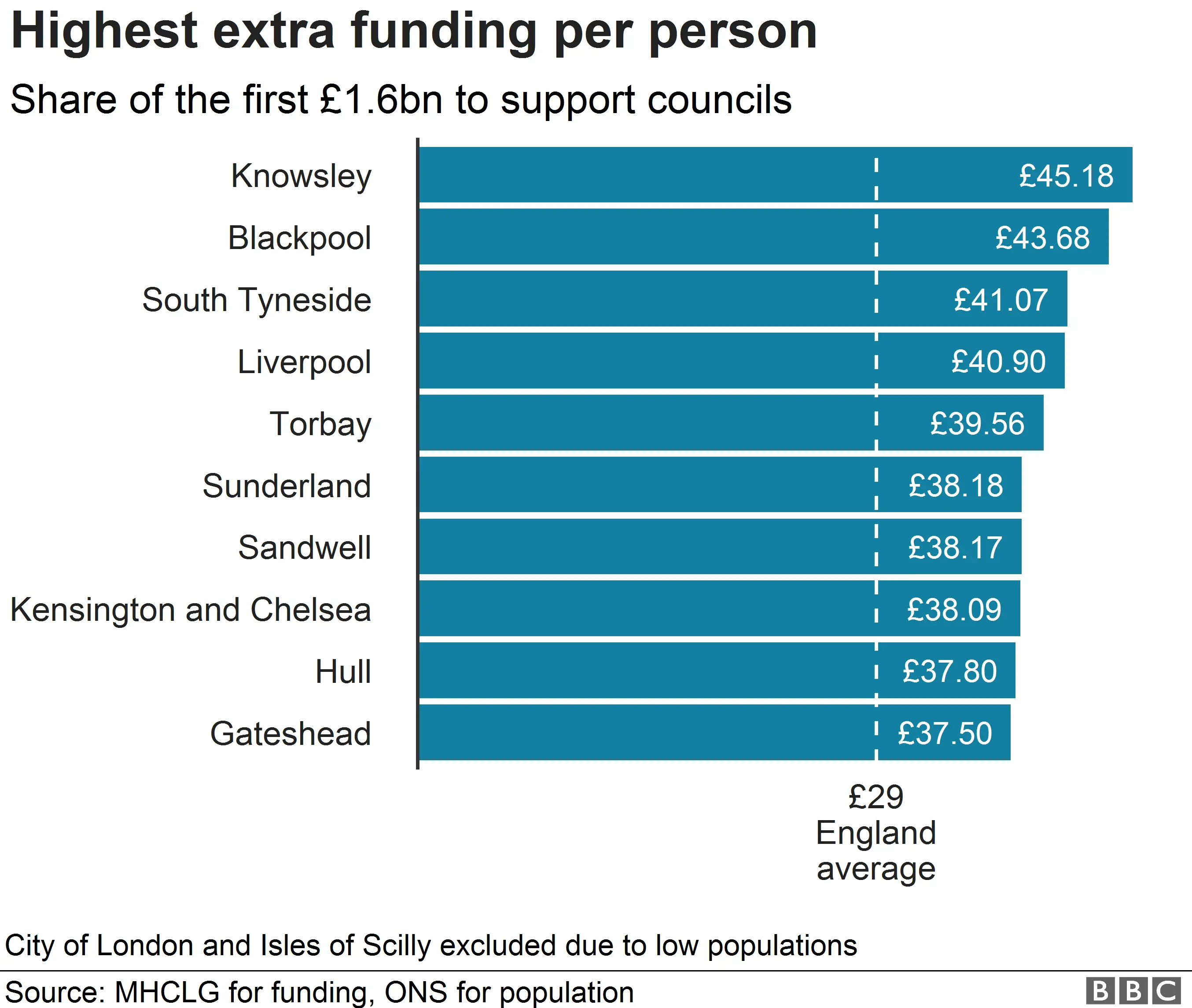
The independent Institute for Fiscal Studies said shire district councils were set to receive an average of 45p per resident, or just 0.4% of their annual funding from the first tranche.
Associate director David Phillips warned this was "unlikely to go far if the coronavirus crisis significantly impacts the services these councils are responsible for, such as housing, homelessness prevention, waste collection, environmental health, and cemeteries and crematorium".
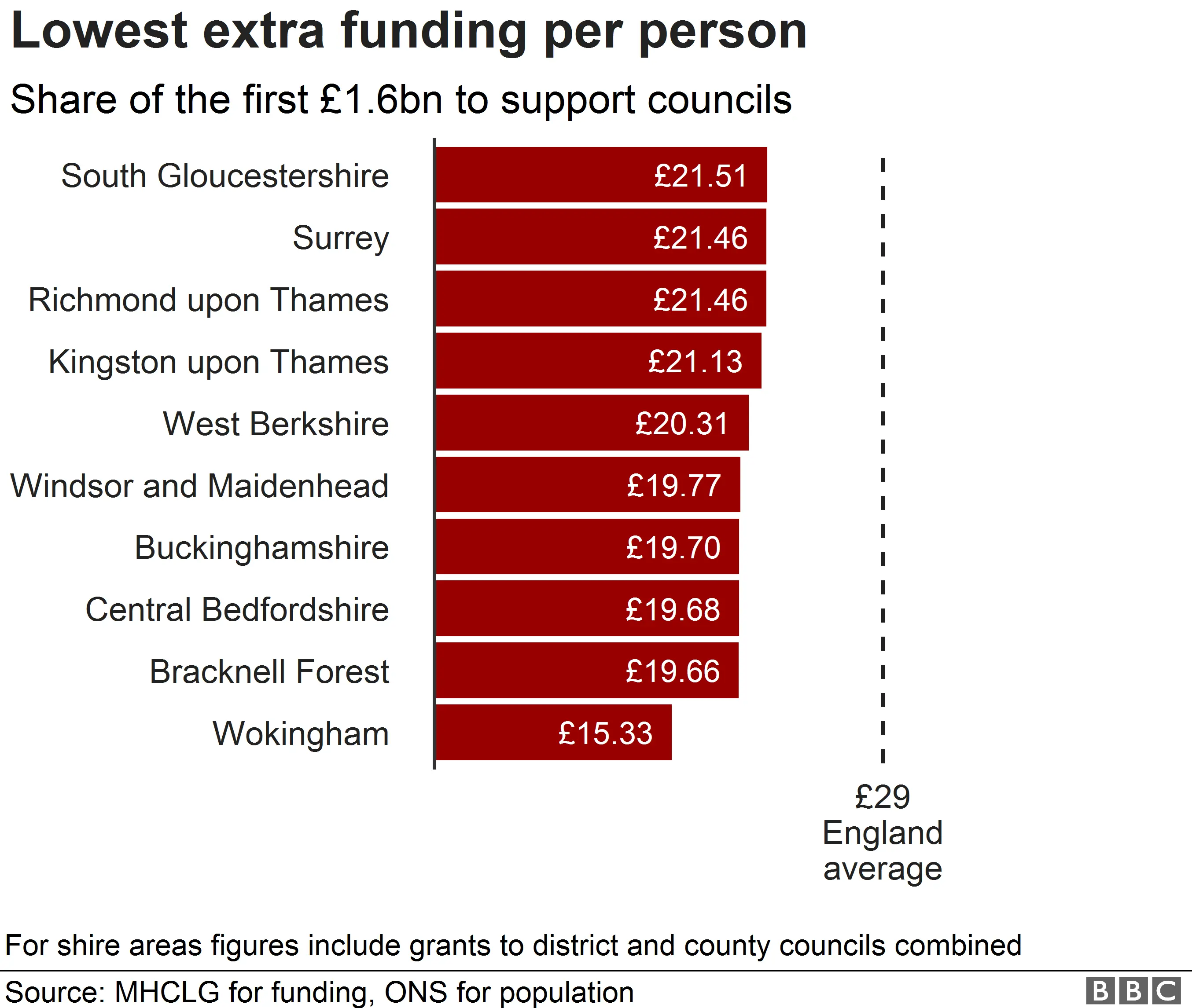
What are some of the additional costs?
Councils are spending more money on during the pandemic is the provision of personal protective equipment (PPE) for care workers and other staff.
Lancashire County Council said it spent £2m on it over the Easter weekend.
Temporary mortuaries are also paid for by councils, incurring rising costs.
In the West Midlands, Sandwell Council said there were a "considerable number of known unknowns" in how much capacity was needed, and the estimated costs changed "almost daily".
Authorities were also told to find accommodation for all rough sleepers in their area.
A spokesman for the Local Government Association said councils were being "stretched to the maximum and seeing an "unsustainable" drop in income.
"Without ongoing funding, some councils may be subject to Section 114 reports in the coming months," he said, adding it would lead to spending blocks cuts to "vital local services that are supporting communities through this crisis".
The Ministry of Housing, Communities and Local Government said councils were being allowed to defer £2.6bn in payments to central government while £850m in social care grants would be paid "up front" to ease pressure on cashflows.
It said it would "work with councils over the coming weeks to ensure they are managing as the pandemic progresses".

- A SIMPLE GUIDE: How do I protect myself?
- AVOIDING CONTACT: The rules on self-isolation and exercise
- LOOK-UP TOOL: Check cases in your area
- VIDEO: The 20-second hand wash
- STRESS: How to look after your mental health

